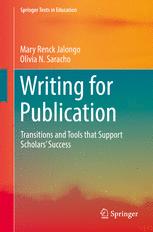

Most ebook files are in PDF format, so you can easily read them using various software such as Foxit Reader or directly on the Google Chrome browser.
Some ebook files are released by publishers in other formats such as .awz, .mobi, .epub, .fb2, etc. You may need to install specific software to read these formats on mobile/PC, such as Calibre.
Please read the tutorial at this link: https://ebookbell.com/faq
We offer FREE conversion to the popular formats you request; however, this may take some time. Therefore, right after payment, please email us, and we will try to provide the service as quickly as possible.
For some exceptional file formats or broken links (if any), please refrain from opening any disputes. Instead, email us first, and we will try to assist within a maximum of 6 hours.
EbookBell Team

0.0
0 reviewsThis book offers systematic instruction and evidence-based guidance to academic authors. It demystifies scholarly writing and helps build both confidence and skill in aspiring and experienced authors. The first part of the book focuses on the author’s role, writing’s risks and rewards, practical strategies for improving writing, and ethical issues. Part Two focuses on the most common writing tasks: conference proposals, practical articles, research articles, and books. Each chapter is replete with specific examples, templates to generate a first draft, and checklists or rubrics for self-evaluation. The final section of the book counsels graduate students and professors on selecting the most promising projects; generating multiple related, yet distinctive, publications from the same body of work; and using writing as a tool for professional development. Written by a team that represents outstanding teaching, award-winning writing, and extensive editorial experience, the book leads teacher/scholar/authors to replace the old “publish or perish” dictum with a different, growth-seeking orientation: publish and flourish.